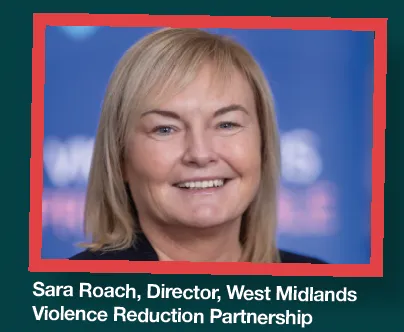
The bell rings and the silence breaks. Books are thrown into bags, the sound of chairs scraping across the floor fills the room and footsteps begin to hurry towards the door. Somewhere between the classroom and the gate, the feeling of safety begins to fade. With each step, the weight gets heavier; school doesn’t feel the same anymore.
The harsh truth is some of our young people don’t get to experience childhood or their teen years like their peers. Their days are not spent wondering if they’ll pass their mock exam, or trying to remember their PE kit. Their worries are far more frightening.
Violence casts a wrecking ball through our communities. It leaves lasting damage on those affected and at times can create a cycle of harm that is incredibly difficult to get out of, though not impossible. When a young person is involved in violence, whether as a victim or a perpetrator, it is important we do not forget that amongst the deafening sirens of police cars and cold metal handcuffs, there is a child that does not understand what’s happening. They’re trying not to cry, they’re worried what they’ll say to mum and they’re worried if they’ll survive this.
Violence is preventable not inevitable. This sits at the very core of the West Midlands Violence Reduction Partnership, a body responsible for reducing serious youth violence across the region. The partnership brings together experts, organisations and communities to tackle the root causes and the cycles of violence and exploitation our young people are facing. It recognises that simply making more arrests will not solve the problem, our young people need more support to be guided away from violence.
The Community Initiative to Reduce Violence (CIRV) has been running in Coventry and Wolverhampton in the West Midlands for a year. The £2 million project aims to tackle violent crime by identifying young people who are suspected of or are already impacted by gangs or county lines drug dealing. The programme makes sure the young people identified have 24/7 access to a team of professionals who help them understand why they are committing crimes and support them to stop.
Research shows inequalities such as poverty, violence in the household and parents who are addicted to drugs or alcohol are more likely to draw a young person into a violent lifestyle. CIRV looks to help young people overcome these issues by providing them with intensive bespoke support including help with housing issues, access to education, ill health, debt or addiction, to create positive routes away from a life of violence. Millions of pounds worth of extra police time has also been invested in both areas.
“This initiative builds on the strength, solidarity and support of our West Midlands Violence Reduction Partnership. The programme has been designed to divert young people out of county lines, gangs and violence; to enable our young people to access positive opportunities for the benefit of themselves, their families and society as a whole; and to prevent and tackle violence, protect people and save lives.”
Simon Foster, the West Midlands Police and Crime Commissioner
The programme has identified hundreds of young people who are already involved in or are at risk of falling into violence and are currently supporting dozens across the two areas. We have already seen knife and other bladed crimes in Coventry fall by almost half compared to last year, likely due to the efforts of CIRV and the other brilliant initiatives across the city.
CIRV will operate from May 2023 to August 2025 after receiving a £2 million investment from the Home Office and the Youth Endowment Fund (YEF)
CIRV is part of a wider £7m investment by the Home Office and YEF into focused deterrence approaches and that there are programmes also being delivered in Nottingham, Leicester, and Manchester.
Case Study - St Giles Mentor
“X is originally from Cameroon and had no identification, this was a priority for me to help X get ID to enable him to work, secure housing, allow more structure in his day and restrict any potential criminal activity. X was at high risk of becoming desperate for money or be a victim of exploitation.
The work that I have carried out with X, supported by Connections was to get him a Citizenship card and NI number. I also supported X to get a bank account and make an application for rent support. We then worked with “Wolves at Work” who are employability coaches and X was supported completing a CV.
With relationships that St Giles have built up with Tesco, we were able to support X with food, and supported him in securing housing.
Sessions that have also been delivered by St Giles to X include cleaning, cooking lessons, where X did the shopping and cooked a meal. X has a partner. St Giles Mentor completed sexual awareness and a consent session.”

Sara Roach, Director, West Midlands Violence Reduction Partnership